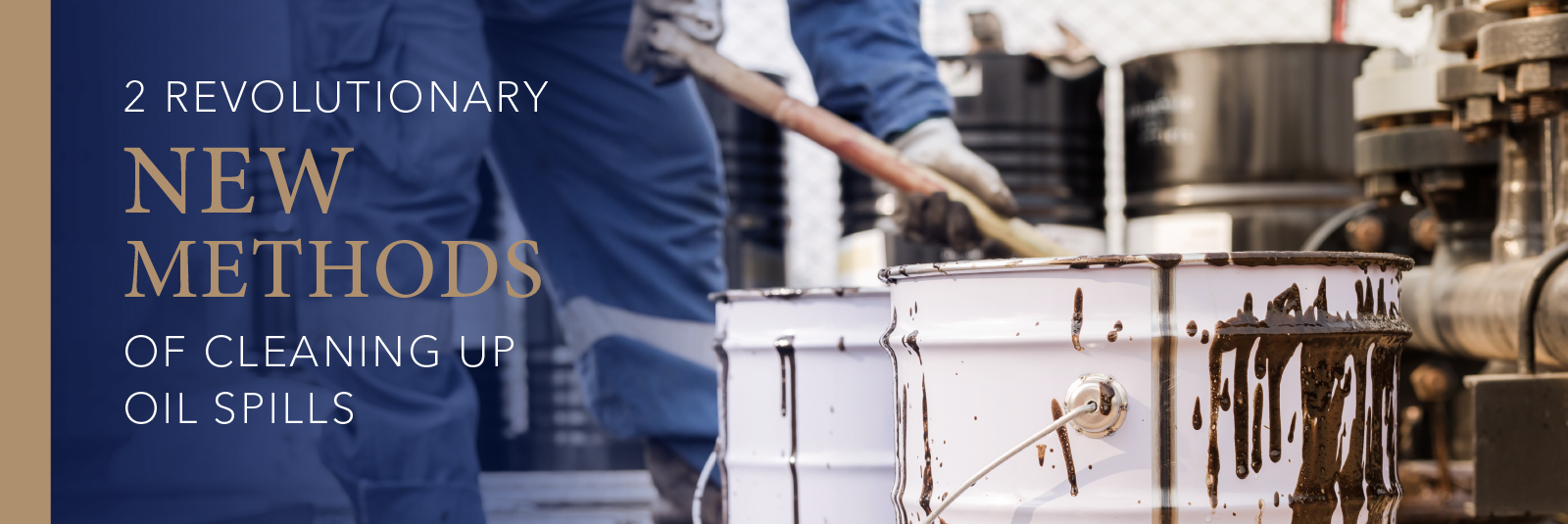While oil spills are decreasing on the whole, ongoing challenges exist with limiting the damage caused to both marine and human life, and our environments. To address these challenges, there’s been an uptick in research focused on uncovering innovative, cost-effective technologies to improve oil spill clean-up methods and responses. Here are two revolutionary new ideas:
Polymer Super Sponge
Flinders University in Australia published a recent study explaining how industrial waste can be used as a sustainable method of cleaning up oil spills. Sulphur and cooking oils are combined to create a new polymer that acts like a super sponge, soaking up crude oil and diesel fuel from seawater. Sulfur and cooking oils are both hydrophobic (repel water) and attract hydrocarbons, easily absorbing crude oil and diesel from the water and transforming it into a gel. The polymer can even be reused after it is squeezed to remove the oil it has previously absorbed.
The polymer is unique because it is created entirely from repurposed waste. This gives it huge potential to be a cheap and sustainable oil spill recovery method that outperforms other tools, such as polypropylene fibres and polyurethane foam. The Flinders University researchers are currently working to manufacture the product on a large scale, with a goal of field testing it over the next year.
Organogelator-Cellulose Composite
Taking a similar approach of removing oil by absorbing it into a separate solid phase, the Indian Institute of Science, Education and Research (IISER) released findings about the effectiveness of an organogelator-cellulose composite for cleaning up spills.
The scientists found that it’s possible to congeal oil into a gel within impregnated cellulose, and then remove the oil particles. As reported by Science Daily, “Combining absorption and gelation processes, they tightly bound the oil to a porous matrix and then simply scooped the solid particles out of the water. Even full with the oil, the granules did not sink but remained at the surface.”
Cellulose—cheap, eco-friendly, and porous—is infused with an “oleogelator,” a cheap, organic, mannitol-based compound to absorb and congeal oil. The product can also be recycled by squeezing or distilling the absorbed oil. As with the above-mentioned super sponge, the organogelator-cellulose composite is an exciting step toward a more sustainable, affordable, and effective method of cleaning up oil spills.
As more research emerges with newer and better technologies to protect our ecosystems from oil spills, it is also important remember the value of a spill manager. Safe Harbor understands the available technologies, but also has the largest spill management network to properly handle a spill. To ensure your business is protected, contact Safe Harbor.




